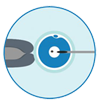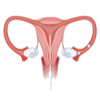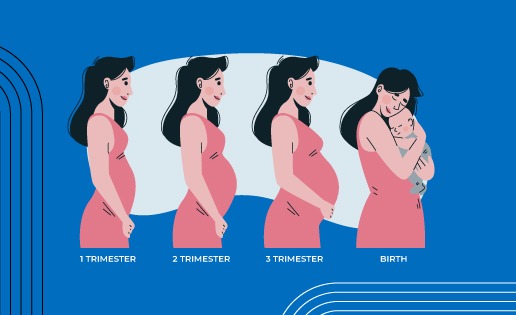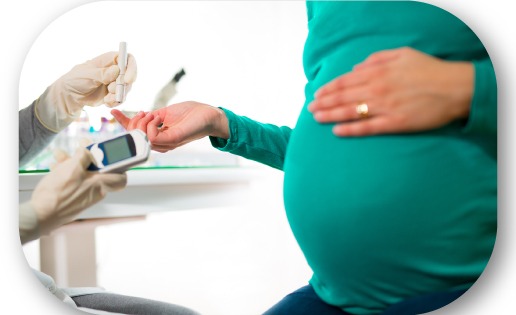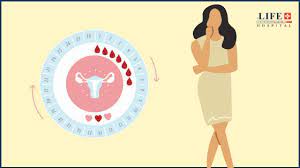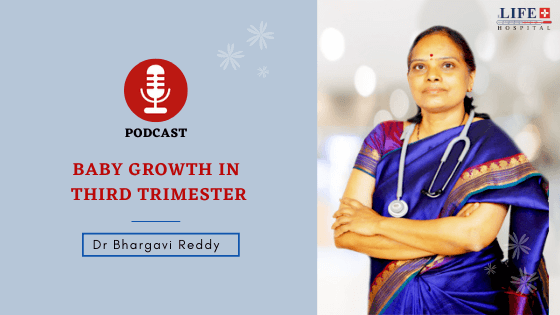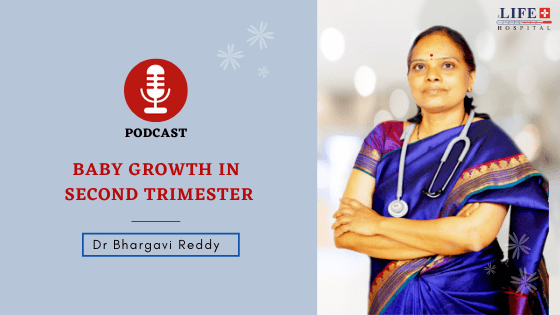Embrace parenthood with the best ICSI Treatment
Intracytoplasmic Sperm Injection (ICSI) is a micromanipulation procedure in which a single sperm is injected directly into an egg to attempt fertilization.
THE LIFE PLUS HOSPITAL is COVID 19 Safe
1. Our Hospital premises are COVID safe
2. Regular sanitization of clinic & hospital premises
3. Immediate medical assistance through Online Consultation
Embrace parenthood with the best ICSI Treatment
Intracytoplasmic Sperm Injection (ICSI) is a micromanipulation procedure in which a single sperm is injected directly into an egg to attempt fertilization.
THE LIFE PLUS HOSPITAL is COVID 19 Safe
- Our Hospital premises are COVID safe
- Regular sanitization of clinic & hospital premises
- Immediate medical assistance through Online Consultation

Intracytoplasmic Sperm Injection (ICSI)
ICSI-IVF is a specialized form of in vitro fertilization that is used most commonly in cases of severe male infertility, after repeated failed fertilization attempts with conventional IVF, or after egg freezing (oocyte preservation).
It’s also very commonly used for preimplantation genetic testing or PGT testing. In fact, most clinics require it if you are doing PGT testing. The concept behind this stipulation is that with conventional insemination, all of the sperm attempting to fertilize an egg can potentially fray the lining of the embryo and give inaccurate PGT results.
Let's Schedule Your Appointment
Treatment

ICSI can help couples who have struggled with infertility, especially when infertility issues are male-related. The main benefit of ICSI during IVF is an enhanced fertilization rate, which can increase the number of fertilized eggs available for transfer or freezing. For couples struggling with male factor infertility, ICSI can also increase your chances for successful fertilization under normal insemination (such as IUI).
Here are some examples of male intended parents who would benefit from ICSI when used alongside IVF, and ones we consider:
- Men with severely low sperm count
- Men who have sperm motility issues.
- Men with problems associated with sperm development.
- Men with a blockage that prevents sperm from being ejaculated (such as a vasectomy).
- Those looking to maximize the number of high-quality embryos created from one egg retrieval.
Men who don’t have issues with sperm count, sperm development, or sperm motility may still be candidates for ICSI. Couples that have not been successful with previous IVF attempts may benefit from ICSI. Additionally, couples that wish to test for certain genetic problems often make good candidates for ICSI treatment.
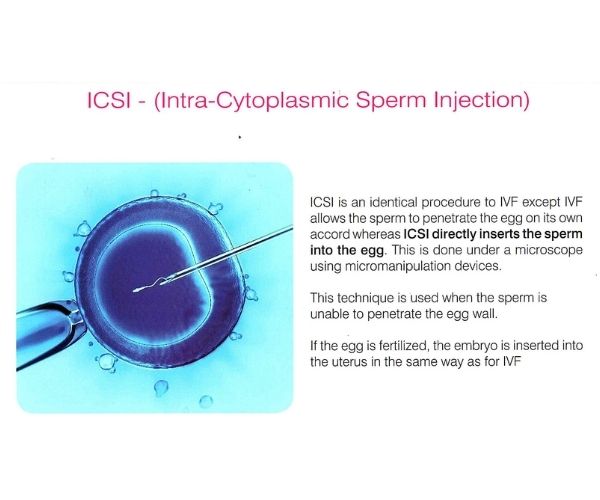

Our Doctors
Why The Life Plus Hospital?
 The Life Plus Hospital is COVID-19 safe
The Life Plus Hospital is COVID-19 safe
Your safety is taken care of by thermal screening, social distancing, sanitized clinics, and hospital rooms, sterilized surgical equipment, and mandatory PPE kits during surgery.
 Medical Expertise With Technology
Medical Expertise With Technology
Our Doctors spend a lot of time with you to diagnose your condition. You are assisted in all pre-assisted Hospitalisation process. We offer advanced laser and laparoscopic surgical treatment. Our procedures are USFDA approved.
 Assisted Surgery Experience
Assisted Surgery Experience
A dedicated Medical Coordinator assists you throughout the surgery journey from insurance paperwork, to free commute from home to hospital & back and admission-discharge process at the hospital.
 Post Natal Care
Post Natal Care
We offer free follow-up consultations and instructions including dietary tips as well as exercises to every patient to ensure they have a smooth recovery to their daily routines.
The Life Plus Hospital in Numbers
IVF / ICSI
Surrogacy
IUI
Healthy IVF Babies
Pronounced ick-see IVF, ICSI stands for intracytoplasmic sperm injection. During regular IVF, many sperm are placed together with an egg, in hopes that one of the sperm will enter and fertilize the egg on its own. With ICSI-IVF, the embryologist takes a single sperm and injects it directly into an egg.
Some fertility clinics recommend ICSI for every IVF cycle. Others reserve the treatment for those with severe male infertility or another medically indicated reason.1 There are good arguments against the routine use of ICSI. (The risks of ICSI-IVF are below.)
With that said, ICSI-IVF has enabled many infertile couples to get pregnant when, without it, they would not have been able to conceive using their own eggs and sperm.
15 Infertility, IVF, and Fertility Treatment Myths
Why Is ICSI-IVF Done?
ICSI-IVF is typically used in cases of severe male infertility, including:2
- Very low sperm count (also known as oligospermia)
- Abnormally shaped sperm (also known as teratozoospermia)
- Poor sperm movement (also known as asthenozoospermia)
If a man does not have any sperm in his ejaculate, but he is producing sperm, they may be retrieved through testicular sperm extraction or TESE. Sperm retrieved through TESE require the use of ICSI. ICSI is also used in cases of retrograde ejaculation if the sperm are retrieved from the man’s urine.
Severe male infertility isn’t the only reason ICSI-IVF is used. Other evidence-based reasons for ICSI include:2
- Previous IVF cycle had few or no fertilized eggs: Sometimes, a good number of eggs are retrieved, and sperm counts look healthy, but no eggs get fertilized. In this case, during the next IVF cycle, ICSI may be tried.
- Frozen sperm are being used: If the thawed sperm don’t appear especially active, ICSI-IVF may be recommended.
- Frozen oocytes are being used: Vitrification of eggs can sometimes cause the hardening of the egg’s shell. This may complicate fertilization, and IVF with ICSI may help overcome this hurdle.
- PGD is being done: PGD (preimplantation genetic diagnosis) is an IVF technology that allows for the genetic screening of embryos. There is concern that regular fertilization techniques may cause sperm cells (who have not fertilized the egg) to “hang around” the embryo, and that this may interfere with accurate PGD results.
- IVM (in vitro maturation) is being used: IVM is an IVF technology where eggs are retrieved from the ovaries before they completely mature. They go through the final stages of maturation in the lab. Some research has found that IVM eggs may not become fertilized by sperm cells at rates comparable to traditional IVF. More research is needed, but it may be that IVM with ICSI is a good option.
Are there differences in embryo quality or pregnancy rates between ICSI and non-ICSI embryos?
There appears to be no difference in the overall embryo quality achieved with ICSI embryos when compared to non-ICSI embryos. Similarly, no difference in pregnancy rates has been shown between ICSI embryos and non-ICSI embryos. Although unproven, there is a belief among many infertility specialists that ICSI may increase embryo yield from a given number of eggs recovered, which has contributed to the increase in ICSI procedures.
Are there any other specific situations where ICSI might be recommended?
ICSI may be recommended when there is a reason to suspect that achieving fertilization may be difficult. ICSI is most often used with couples who are dealing with male infertility factors. Male infertility factors can include any of the following: low sperm counts, poor motility or movement of the sperm, poor sperm quality, sperm that lack the ability to penetrate an egg or azoospermia. Azoospermia is a condition where there is no sperm in the male’s ejaculation. There are two types of azoospermia: obstructive and non-obstructive. Obstructive azoospermia may be caused by any of the following:
- Previous vasectomy
- Congenital absence of the vas
- Scarring from prior infections
Non-obstructive azoospermia occurs when a defective testicle is not producing sperm. In the case of azoospermia, the probability of obtaining usable sperm is low, and the possibility of using donor sperm may be considered.
Success Rate
The ICSI procedure fertilizes 50 to 80 percent of eggs. You might assume all eggs get fertilized with ICSI-IVF, but they don’t. Fertilization isn’t guaranteed even when a sperm is injected into the egg.
Remember that fertilization rates don’t tell you the clinical pregnancy or live birth rates. Once fertilization happens, the success rate for a couple using ICSI with IVF is the same as a couple using regular IVF treatment.2
Price ICSI
How Much Does ICSI cost?
All procedures are similar to IVF except the oocytes are processed and manually fertilized with sperm using sophisticated technology and precision equipment.
- Single cycle Plan (Self): INR 70,000+ ICSI Charges INR 20,000 = 90,000
Inclusions:
Procedural charges (Oocyte aspiration, Embryology, Embryo Transfer)
- Semen Processing Charges
- Media and Lab Consumable Charges
- Consultations and Counseling
- Operation Theatre Charges
- Anesthetist Charges
- Nursing Services charges
Exclusions:
- Follicular Scans
- Medicines and injections
- Blood tests
Get in Touch
Tell us about your problems and we’ll figure out the best treatment option for you.
Life Plus hospital
Women and Child Care Hospital in Indiranagar | LifePlus Hospital
At Life plus hospital, we offer a comprehensive range of women’s health services. The Department is managed by highly experienced lady gynecological doctors who offer specialized attention and compassionate care for women
Let's Schedule Your Appointment
IUI & IVF Success Story
https://youtu.be/3sBjEYtzV2Y
ICSI (Intracytoplasmic Sperm Injection) Faq's
ICSI is considered absolutely necessary is in the case of male factor infertility with an abnormal semen analysis. In the Bay Area, however, about 75 percent of all IVF cases are now ICSI. Patients are electing to undergo ICSI for reasons other than male factor infertility, including:
- Previous poor fertilization with IVF
- Variable sperm counts
- Unexplained infertility
For couples interested in knowing about their own fertilization capability, we offer split ICSI. This option involves performing ICSI on a majority of all mature eggs and incubating the remainder with sperm. In effect, split ICSI can provide a safety net against failed fertilization with standard insemination.
Through the ICSI procedure, many couples with difficult male factor infertility problems have achieved pregnancy at UCSF. Fertilization rates of 70 to 80 percent of all eggs injected – equivalent to fertilization with normal sperm – are currently being achieved, and pregnancy rates are comparable to those seen with IVF in couples with no male factor infertility.
There are several risks. First, during the ICSI procedure, a small number of eggs – usually less than 5 percent – can be damaged as a result of the needle insertion. Second, the overall risk of having a baby with a chromosomal abnormality in the X or Y chromosomes is 0.8 percent, or eight per 1000, which is four times the average seen with spontaneous conception. At present, we do not know the reason for this increased risk.







